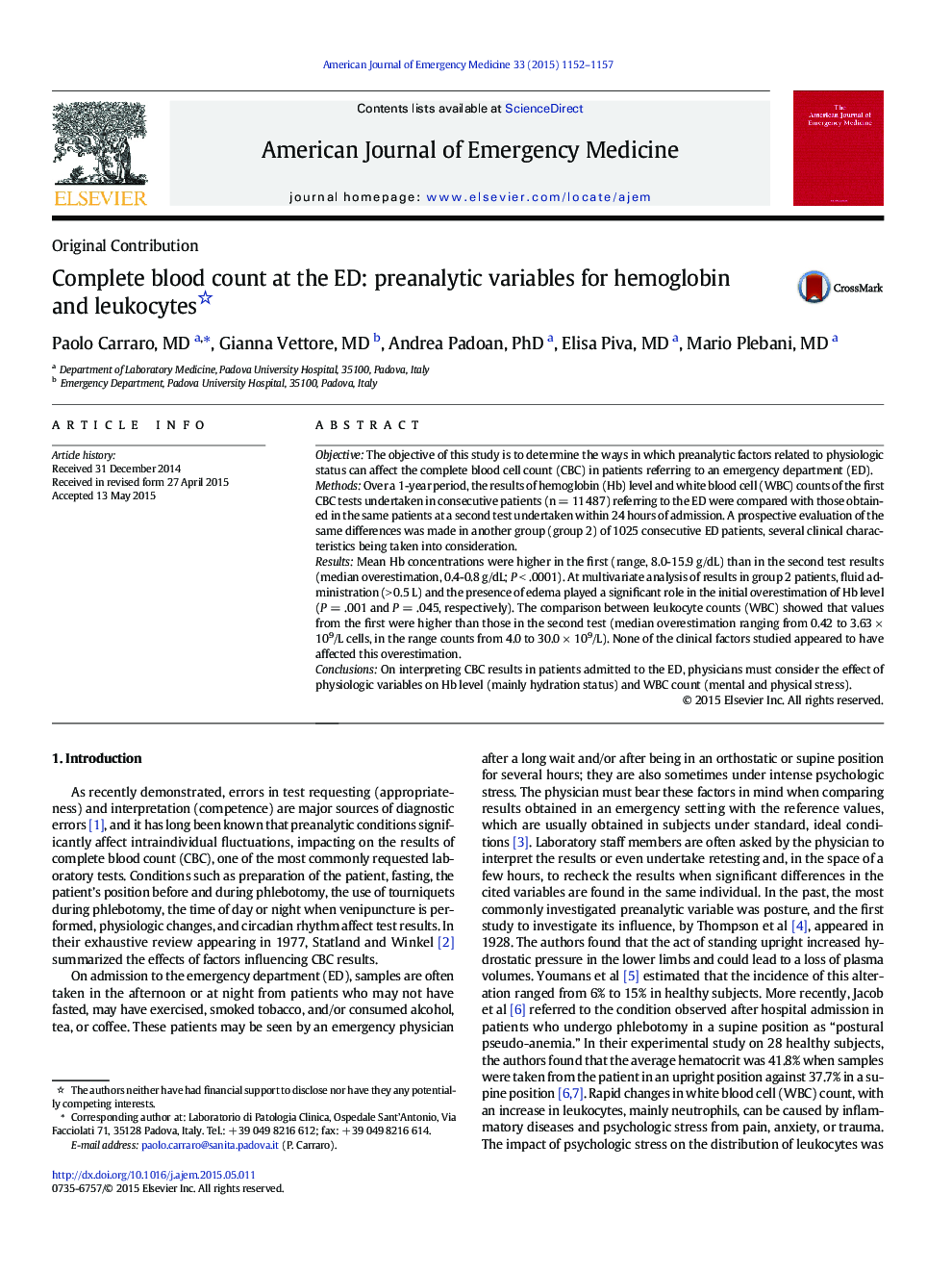| Article ID | Journal | Published Year | Pages | File Type |
|---|---|---|---|---|
| 3223886 | The American Journal of Emergency Medicine | 2015 | 6 Pages |
ObjectiveThe objective of this study is to determine the ways in which preanalytic factors related to physiologic status can affect the complete blood cell count (CBC) in patients referring to an emergency department (ED).MethodsOver a 1-year period, the results of hemoglobin (Hb) level and white blood cell (WBC) counts of the first CBC tests undertaken in consecutive patients (n = 11 487) referring to the ED were compared with those obtained in the same patients at a second test undertaken within 24 hours of admission. A prospective evaluation of the same differences was made in another group (group 2) of 1025 consecutive ED patients, several clinical characteristics being taken into consideration.ResultsMean Hb concentrations were higher in the first (range, 8.0-15.9 g/dL) than in the second test results (median overestimation, 0.4-0.8 g/dL; P < .0001). At multivariate analysis of results in group 2 patients, fluid administration (> 0.5 L) and the presence of edema played a significant role in the initial overestimation of Hb level (P = .001 and P = .045, respectively). The comparison between leukocyte counts (WBC) showed that values from the first were higher than those in the second test (median overestimation ranging from 0.42 to 3.63 × 109/L cells, in the range counts from 4.0 to 30.0 × 109/L). None of the clinical factors studied appeared to have affected this overestimation.ConclusionsOn interpreting CBC results in patients admitted to the ED, physicians must consider the effect of physiologic variables on Hb level (mainly hydration status) and WBC count (mental and physical stress).
